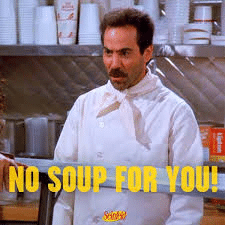Let’s face it: cold calling can be really cold—not just on the prospects’ end but also on the agents’. My husband and I recently listed our apartment for sale. As an agent and out-of-state property owner, I decided to go with someone living close to the listing. After a month of no offers, we decided to take it off the market and reevaluate (see–this happens to all of us!)
I was not ready for the avalanche of calls from agents in the area asking for our listing. As I fielded these calls (and my husband’s calls) and listened to the good, the bad, and the ugly, I thought–we need an article about cold calling tips to amp up the cold calling game. So here you go!
1. Don’t Focus Solely on Getting a Listing
Before most agents introduced themselves, they first said, “I see your listing is available” or “Your listing is off the market.”
Many agents forget that we are in the people business. The people we work with are typically making the most expensive purchases of their lives by buying a home. We are in charge of finding a property that someone will call home, where they will lay their heads at night and keep their families safe. You will have difficulty getting clients and stumble through a cold call when you forget that.
Do This Instead
- Introduce yourself: I might be dating myself here, but remember how you were taught to call people’s house phones when you were a kid? Do that. “Hi, this is Gina. May I please speak to X?” This is how we did it in my day.
- Put people first, the listing second: If this is someone you hope to work with, focus on making a good first impression and building rapport. A simple “How are you today?” can help loosen people’s moods.
- Show empathy: You don’t know why the home is off the market, and there could be a million reasons. It could be a death in the family, someone losing their job, or another house they were buying falling through. Keep the worst-case scenario in mind because it could be the reason, and show empathy to the person on the other end of the phone.
2. Don’t Ask for Someone Other Than Who You Called
This one really shocked me. An agent called me and asked, “May I speak to the owner of (my address)?” to which I replied, “This is she.” He followed with, “May I speak to your husband?” Ugh, no, you may not. I am an equal owner of the home, and my name is on the deed. What is this, the 1950s? My mind is still blown.

I get it—with cell phones, you sometimes don’t know who you’ll get. However, when a property listing is on the MLS, it does not take much effort to see who the owners are. It typically says it at the bottom of the listing. Also, you can look up public records to see who the owner is.
Do This Instead
- Research the person before calling: Just picking up the phone without understanding who is on the other end shows you’re unprepared and uninterested in them. About 76% of top performers do research on leads before dialing. Look up the person on Google, check their social profiles, and know who you’re talking with before calling.
- Search public records: Google search “public records home ownership CITY, STATE” to find ownership details.
- Speak to who’s on the phone: No matter who you get on the phone, introduce yourself and have the conversation. If you have the wrong person, they’ll tell you.
3. Don’t Go in Unprepared
Some calls my husband and I received weren’t bad, but the agent lacked confidence. There were lots of “umm” and “I don’t know,” which immediately made me think the agent was clueless. While you can’t predict who’s picking up the phone or their mood, you can control what’s going on from your side.
Even if a person isn’t a real estate agent, they can sniff out someone confident and knowledgeable versus someone who has no idea what they’re doing. If you’re going in blind (without doing the research I mentioned above) and without a script to follow, you could fail before you even dial.
Do This Instead
- Have your pitch ready: No matter your industry, you need an elevator pitch. That is cold calling technique 101. Have a 30-to-90-second speech to tell someone who you are and what you do. Check out this elevator pitch example from our partner site, Fit Small Business:
“How long has your home been on the market?”
“In a seller’s market, it’s best to minimize the number of days on the market to bring in the highest offers. Our company has worked with over 500 homeowners to sell their homes in an average of 10 days and 8% over ask. We use predictive technology to advertise to clients interested in buying sooner than later.”
“As an avid tech nerd, I have found that predictive technology in conjunction with social media is an effective way to attract clients and entice multiple offers. I love to create and review reports with my clients to demonstrate our technological abilities and determine our best avenue of success for a quick sales transaction.”
“Have you tried social media marketing and advertising to sell your home?”
- Know what makes you unique: To the person you’re calling, you’re just like every other real estate agent, so make sure you come up with a unique selling proposition that sets you apart from the crowd. Maybe you have a certification or designation to work with specific niche clients, or you sold the house next door, so you are familiar with the location. Decide what makes you unique and prove to the prospect that you’re not just every other agent trying to get a listing.
- How to get better at cold calling? Practice, practice, practice: Work with a colleague, family member, or friend and practice your cold-calling abilities on them. The more you practice your scripted cold calling, the easier it will be for you to pivot when objections come from callers. It will make you sound more natural, and people will be more inclined to talk to someone real.
In addition to the niche real estate leads for agents interested in FSBO, FRBO, foreclosures, and expired listings, REDX offers a role-playing system for its customers that gives cold-calling advice. Choose the type of lead with whom you would like to practice and the difficulty level. REDX will connect you with a live caller to test your cold-calling skills. The recording is sent to you afterward so you can critique yourself. It also includes additional cold-calling tips on overcoming objections and points on which to improve.
4. Don’t Bash the Current Agent
It may be tempting to point out what the last agent did wrong and why the property hasn’t sold—DON’T! Let me say that again: DON’T! Why? Think of it this way: a seller went through the process of finding a real estate agent they trusted and believed would do the job and found out that their judgment was wrong. So, you’re not bashing the agent; you’re bashing the person whose business you’re trying to procure. Not the best way to make a first impression or start a relationship.
You also don’t know why things didn’t work out. Maybe it had nothing to do with the agent or their listing marketing plan. In our case, we took the apartment off the market to reevaluate our options. The agent could also be a friend or relative of the owner, so you’re burrowing further down the rabbit hole. And you’re missing the point–it’s not what the agent didn’t do; it’s what you can do as someone’s agent.
Do This Instead
- Start with the positive, then elaborate: This may seem like a crazy cold-calling tip, but start with what the current agent did right. “The listing pictures and description look great. Your agent did a nice job with them.” Then, you can inject what you would do further. For example, “Those pictures would look amazing on social media. Is that something you discussed with your current agent? If not, I’d like to tell you more about my marketing strategies.”
- Focus on what you can do: To elaborate on the above, take the time to tell your potential client what you do as an agent. Speak about your direct mail services marketing strategies, such as sending postcards or social media posts and followers. This moment is the time to let your work shine rather than bash someone you don’t know (even if they did a terrible job).
5. Don’t Call at Certain Hours
My house went off the market on Monday evening, and on Tuesday and Wednesday between 8 a.m. and 11 a.m. and 5 p.m. and 6 p.m., my husband and I received over 30 phone calls. This barrage was very disruptive to our daily routines.
Think about what people do throughout the week and when you’re calling. Typically, between 8 a.m. and 9 a.m., people get ready for work, commute, drop kids at school, etc. From 5 p.m. to 6 p.m., they’re doing the opposite: coming home from work, going to the gym, picking up their kids, making dinner, etc. If you wouldn’t want to be bothered during those times, other people won’t want to either.
Do This Instead
- Call during proven hours: Studies show that the best times to make cold calls are between 11 a.m. and 12 p.m. and 4 p.m. and 5 p.m. As much as you’re itching to make that call, it may cost you the lead if you make it at an inopportune time.
- Warm up a lead before calling: As a tested cold-calling technique, you want to be the first to contact this lead. However, think about warming the prospect up before picking up the phone. This tip could be a handwritten note, a postcard, or an email. If the homeowners see and recognize a name they know when the phone rings, you’ll have a better chance of converting.
6. Don’t Be Overly Persistent
Some people shoot out of bed and start their day. On the other hand, I enjoy the quiet before my work day begins; I read a couple of chapters of a book, have coffee, look at Instagram, and walk my dog before sitting down for the next 9-12 hours in front of my computer. The last thing I want is phone calls disrupting my quiet time. Even if you’re the person who jumps out of bed as soon as the alarm goes off to prepare breakfast and lunches for your family or go for a morning run, you don’t want repeated calls from an unknown number during that time.
If someone doesn’t answer your call the first time, don’t keep calling back immediately. It makes you appear desperate and shows no common courtesy. This morning, an agent called me three times in a row before 8 a.m. and left a voicemail with no message, which resulted in an additional ping on my phone. The fourth time, I picked up and gave him the same advice I’m giving you: “Don’t call someone three times before 8 a.m.” End call, block—no lead for you.

Do This Instead
- Space out your calls: This is probably a pretty apparent cold-calling tip, but if someone doesn’t pick up your first call, wait until later to call again. Spacing the calls out by a day or two is usually best, but if you do call twice in a day, call once in the morning and once in the evening. Remember, connecting with a lead takes an average of 3 call attempts, so be patient and don’t always expect to nail it on the first try.
- Ask if there’s a better time to call: As real estate agents, knowing how to read people through verbal or non-verbal cues is important. You should be able to tell if someone picks up the phone and is busy or doesn’t want to talk. That is not the time to continue your elevator pitch. Simply ask them when you can call them back to chat–and make sure to call them at the agreed time.
7. Don’t Forget About the Property
I know I just said to focus on the people, but hear me out. While your primary focus is the person you call, you shouldn’t forget about their property. I asked one agent if they had any interested buyers, to which he replied, “I don’t know. I haven’t even seen the property yet.” Umm, why are you calling me if you haven’t even taken a peek at the property pictures? Oh, that’s right, you only want the listing for the Zillow street cred.
Just like I encouraged you to research the person you’re calling, you need to study the property you’re calling about. While we know “listings are king” in real estate, you need to be able to speak to the property you are calling about in order to expand upon your plans for selling that property.
Do This Instead
- Review all materials you can find about the property: Just like you would research the person who owns the property, research the property like you’re doing a CMA. Review items on the MLS, dig into public records, and see if the property has appeared on websites or social media platforms.
- Research statistics about the area: Not only should you know about the property, but you should also know the neighborhood in which it resides. How many properties have sold in that area in the past six months? How many similar properties are currently on the market? What are their price points? What are the average days on the market? If you don’t know these questions, learn them before you call.
- Reference the property in your conversation: Show that you’ve taken the time to do your research by referencing the property on your call. “Gina, I’ve seen that you recently renovated the kitchen; what year did you do that?” or “The hardwood floors are amazing, are they original?”
Bonus Cold Calling Script
So, how do you cold call? I couldn’t give you all these cold-calling tips without leaving you with a script. There is also plenty more where this came from. Check out our article on cold-calling scripts to get more cold-calling techniques for your arsenal.
Hi, I’m [your name] with [your company]. Is this the homeowner of [address]?
You know, I work in [neighborhood], and I noticed that your home was no longer for sale. Are you planning to put it back on the market?
Listen—they will sometimes say “maybe later” or “not for a while.”
I can understand why you might feel pretty discouraged—it’s a great house. Any idea why it didn’t sell? Did you get any offers?
Listen to what they have to say.
I was just surprised to see it on the market for [how many] days. I assumed it would be gone in a few weeks. What made you all decide to sell? Where are you moving to?
I know you’ve likely had quite a few agents calling you, but as I said, I’ve worked in the neighborhood for [#] years, I know this neighborhood, I’ve sold homes in this neighborhood, and I’d love a chance to sell your home or at least take a tour and see what might be holding it back.
Would you mind if I came by this Saturday at [specific time]? I’m happy to give you some feedback.
Bringing It Home
You might have read this and thought, Wow, she really hates cold calls. I hope that’s not the impression I’ve given you because I don’t! As a real estate agent, I would attest that they are a tried-and-true way to make connections and grow your business, but they have to be done right. Cold calling is definitely an art and has made a lot of agents a lot of money, so don’t give up. Use these cold-calling tips to make your calls work for you.
Your Take
Have you witnessed (or partaken in) any crazy or bad cold calls? Maybe someone (or you) said something brilliant you wrote down to use yourself—let us know! Cold calls are tricky, so we’re always looking for new ideas to bring you real estate business. Tell us!










Add comment